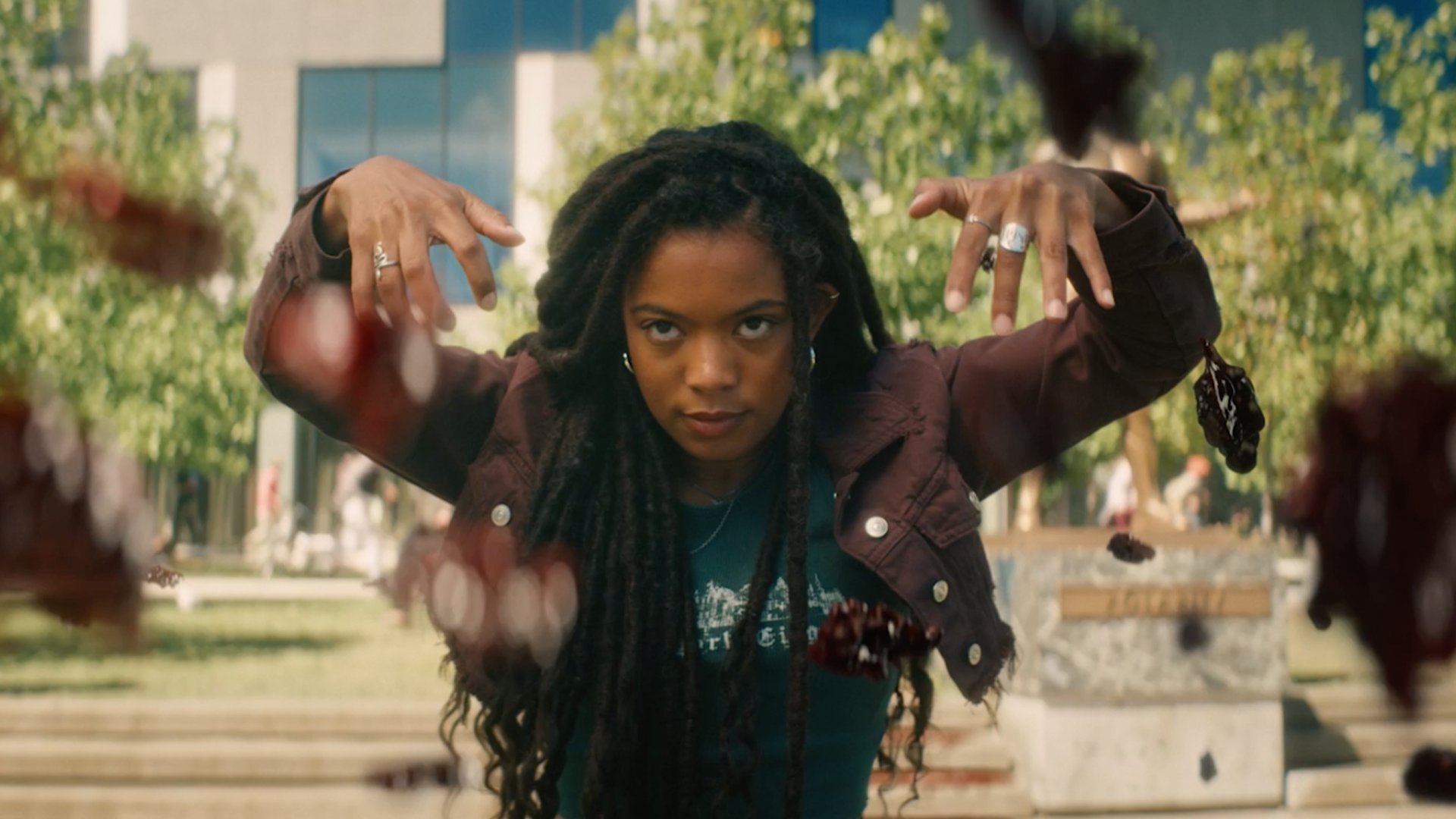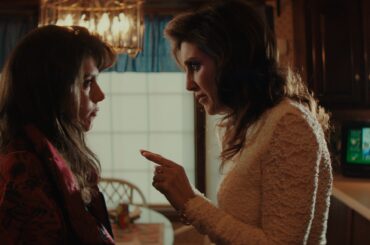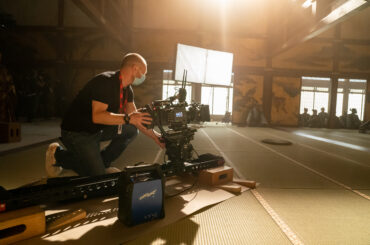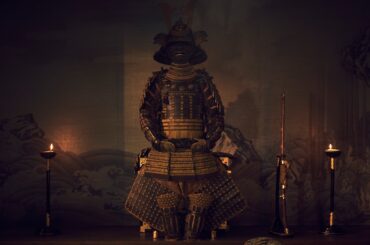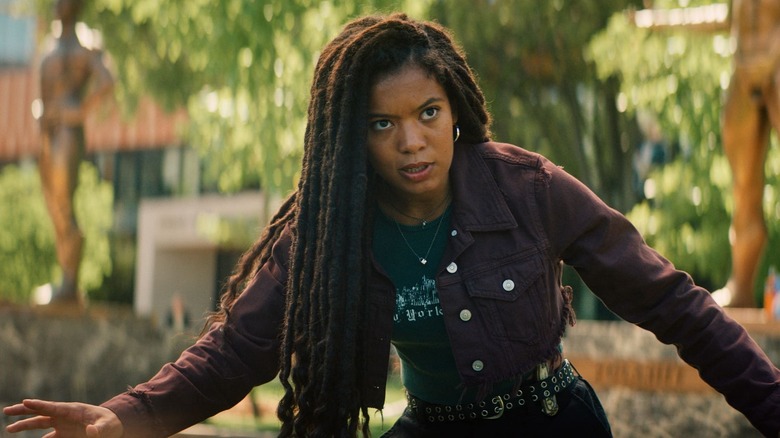
Director Sanaa Hamri shoots with a clean and crisp eye. Whether she’s shooting action in Gen V or Wheel of Time or the best of the best musicians for music and concert videos, Hamri lives up to the entertainment value on the page or in a song. She’s an adaptable filmmaker who can shoot supe action or craft a warm blanket of a rom-com, like the film Just Wright (edited by Música‘s Melissa Kent).
The Wheel of Time producer cranks up the laughs and cuts and bruises in the Gen V finale. The final episode is a fast-paced, action-heavy closer. Even with all the chaos unfolding, Hamri and all involved keep the blood-spattered madness in order, as well as the key character moments.
Recently, spoke with Immersive Media about the Gen V finale, her experience producing and directing Wheel of Time, and when she knew as a filmmaker that she could make high art in television.
[Note: This interview has been edited for clarity and length]
You have so many moving pieces together in the finale. What was necessary to have completed right away in pre-production?
Okay, for the finale, coming on a show like that, it’s always already complicated. One thing for me is I love, as a filmmaker, to balance high-stakes action with significant character developments. It is about finding a way to take those intense and visceral scenes and have the deep and emotional ethical dilemmas. I’m conscientious as I’m prepping a sequence and thinking of the edit, because I used to be an editor myself. I can only think about what kind of shots they’re going to use.
So, it’s really about making sure the scenes are emotional and filled with tension. Emma and Sam, there’s that scene with them in the theater. It’s just a really deep scene in the middle of all the mayhem. The supes are loose, and you’ve got all the action sequences, but also there’s a tone with Gen V in which you cannot forget. It’s the satirical humor. The character of Ashley Bennett really brings it to light where she’s in the conference room.
I’m kind of giving you the slice of life in my brain as I was approaching that episode.
Please do.
There’s chaos going on, and within that chaos, the characters are going through their coming of age and understanding who they are as young adults. So, as a filmmaker, the camera is visceral, it’s raw, it’s in your face, it’s edgy. You have Jazz Sinclair, when she’s fighting the invisible guy, he’s just going like this [imitating punching nothing.
Kudos to those actor, because they really embodied the characters, and I was able to play with them as a filmmaker. The sequence with Marie fighting the invisible person has, at one point, I had her hold the camera and the camera was the invisible guy. It was making sure the shots had some circular motion to it. Those are the things that I was thinking about, not only being like, “Oh, it’s handheld and edgy,” but also has the style to it. It captures a cinematic edge to it.
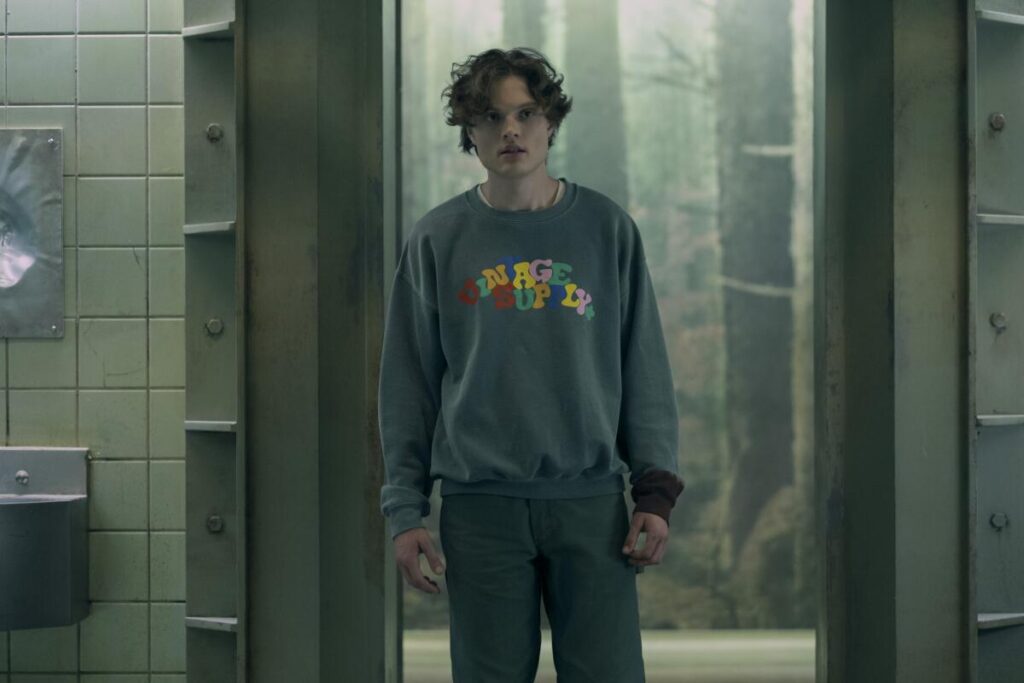
I like your distinction that it’s cinematic edge, not just shaking a camera. Remember that time in the 2000s when it wasn’t cinematic mainstream action, just a lot of shaking of the camera?
That’s right. There has to be a choice in terms of camerawork, and I am very much involved in style. Coming from a background of working with artists and being a creative director of concerts, music videos, and doing commercials, I’m aware of what the language of the camera does and how it affects the tone of the scene.
For example, if you look at the scene between Emma and Sam in the theater, there was no handheld. It was in studio mode and it was a design shot that had a Steadicam, and it had a different flow. Then, when you go back outside of that and the whole university, everybody’s running around and crazy.
It’s almost like you’re in the middle of a Narcos, Amores perros kind of situation that is gnarly. So, the camera has to reflect the scene, but it can’t be schizophrenic, either. I was conscientious of when we cut it together, all the scenes flowed into each other. It wasn’t just random choices just because. It was my foray into the supe world, as well. Definitely a challenge, but as a filmmaker, I always say I don’t repeat myself.
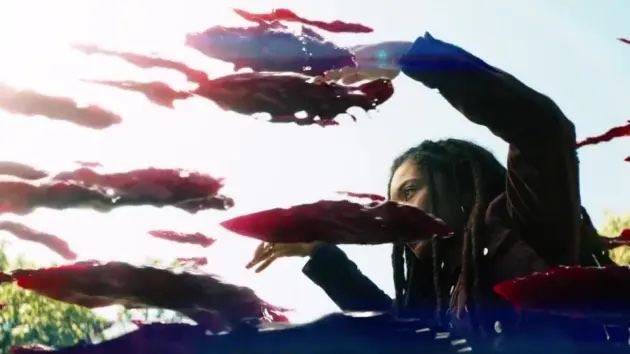
In your career, when did you start noticing the visual language of television and streaming to expand? When cinematic TV kind of became the norm for you?
Well, I was heavily in music video land with a full-blown career. I was directing, edited all my stuff, and mixed everything. I was a one-stop-shop person.
You did a lot of great work.
Thank you. I had a hunch then that the music video industry was going to collapse. Also, as a filmmaker, I needed to expand my language and really started telling stories. I did a Jay-Z video for the song called Song Cry, and it was a full-blown storyline with past and present and this love saga. It could only fit the story in four and a half minutes, and I started feeling constrained by that medium. Then I realized, this medium is not going to last.
I did a Mariah Carey video for $2 million called Bringin’ On the Heartbreak. She’s coming out of a helicopter and everything. That was the heyday, and I knew it was not sustainable, so I was like, let me get into film and television. So then I was doing movies, and while I was doing movies, I realized that I wanted to be in the business of TV. The reason why I wanted to be in the business of television series or streaming at that time was just TV is because the stories continued. It wasn’t, again, bound by a two-hour format. You can really explore the characters. When I decided to kind of go into that foray, my colleagues were poo-pooing television at that time.
Really?
It was 2006 or so. People were like, “You’re a big director, why would you even think about doing television?” They thought I was crazy. I didn’t listen to anybody and I wound up doing Desperate Housewives, which was an interesting experience.
And then the great experience was Shameless with John Wells, that whole company, and that’s where I really learned about, “Oh, this is how it works in television. I want to have my own shows.” Working with the writers and all that, by the time I got into doing series, everything changed and it became all about the golden age of television.
My colleagues who had told me, “It’s beneath you to do it,” were now calling me trying to get into television. They couldn’t. They had the best music videos, the best whatever, and even did movies. Those directors could not make the leap from film to television, either. So, I really go by my instinct with these things. What was really great is I was able to kind of understand the process. It’s so different when you’re in the machine of a series.
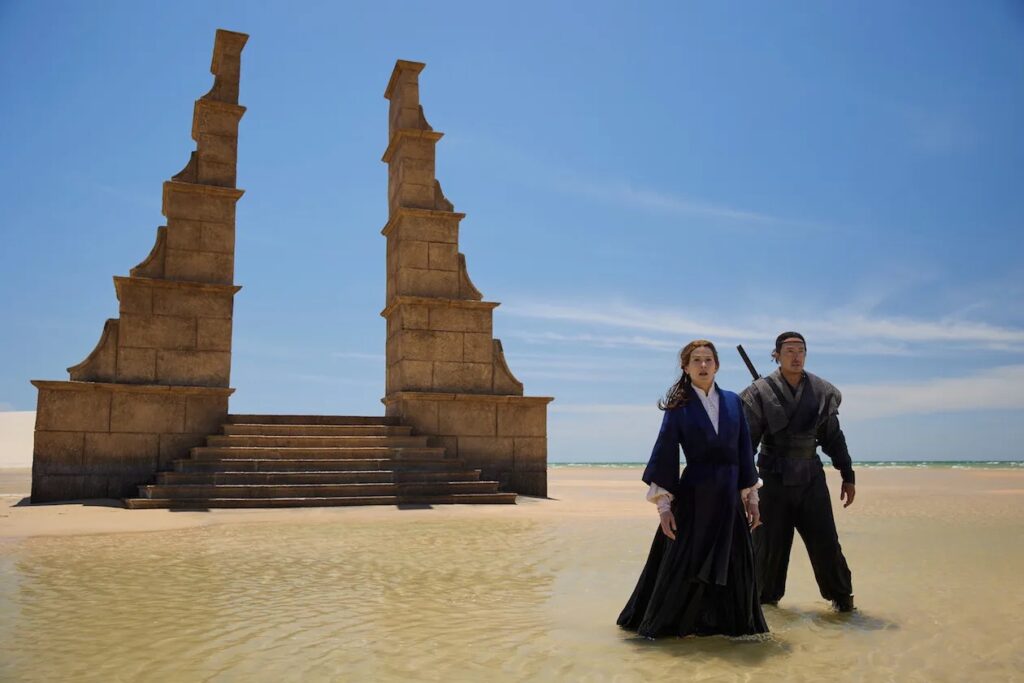
When did you feel even more authorship in the world of TV?
I was lucky enough to join the team of Lee Daniels, Danny Strong, and Ilene Chaiken to produce and direct Empire. I did six seasons. It’s where I realized, as well, that I could do any kind of language cinematically as long as I’m there as a producer and it’s my show and I’m part of that thing.
Some of those episodes were way better than any movie that was out at that time. It’s the same thing with doing a lot of these fantasy genre shows. I produced and directed Wheel of Time. We get budgets, we’re in different countries, and we’re able to really push. I was abroad for a year doing that show. Just from a filmmaker’s perspective, I was able to play in the lab and try different things. I directed half the season and produced the full season.
Again, if you took just the finale of Wheel of Time and put it up against a movie, the finale of Wheel of Time is regarded in terms of that high art of cinema. So, to me, it’s not really about the medium anymore. To me, it’s about the content and the execution of content. It’s not about budget. I always say it doesn’t cost any money to know what your lens is, what the lighting should be, and where to put the camera and how to block the scene. That doesn’t cost any money. You just have to know how to do it and make it pop, so to speak.
Check back next week for a career-spanning interview with Sanaa Hamri.


